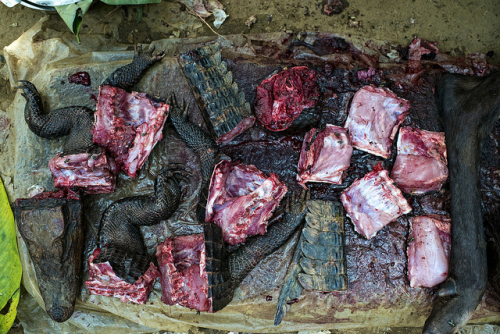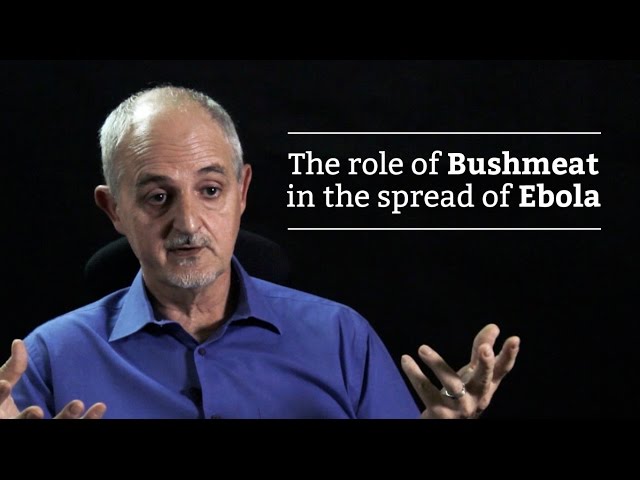
BOGOR, Indonesia—A ban on the hunting of forest-based wildlife in hopes of stemming the possible spread of the Ebola virus in Africa would be impracticable, said a leading expert earlier this year, as the disease spread across the western edge of the continent, with a death toll nearing 7,000.
Tens of millions of Africans rely on bushmeat for up to 80 percent of their protein, and a ban could never be enforced, as there is no alternative source of protein, said CIFOR’s Deputy Director Robert Nasi, who has been studying bushmeat in Africa for more than 10 years.
Bushmeat hunting is largely illegal in many countries in Africa, but weak law enforcement undermines any efforts to actually stop the trade: For example, in Cameroon alone, there are believed to be 460,000 hunters.
Amid punditry and panic over the Ebola outbreak, CIFOR sorted fact from fiction about the potential role of bushmeat and forests, calling for more research to understand the value chain of the bushmeat trade — a difficult task given that the trade is carried out informally, illegally and unsustainably.
Watch an interview with Robert Nasi, above, or read a transcript of the interview here.
We want you to share Forests News content, which is licensed under Creative Commons Attribution-NonCommercial-ShareAlike 4.0 International (CC BY-NC-SA 4.0). This means you are free to redistribute our material for non-commercial purposes. All we ask is that you give Forests News appropriate credit and link to the original Forests News content, indicate if changes were made, and distribute your contributions under the same Creative Commons license. You must notify Forests News if you repost, reprint or reuse our materials by contacting forestsnews@cifor-icraf.org.
